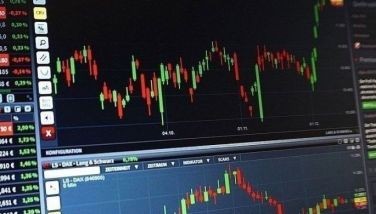Healthcare workers

This pandemic that is in its third year is causing healthcare workers to burnout. Even in the United States where they are well paid, many are opting out.
In the United States, a nationwide labor shortage has hit the healthcare industry as the country goes through another surge of COVID cases. There are fears that this problem may bring hospitals to the breaking point.
More than half a million healthcare workers have left their jobs since the start of the pandemic, an article in quartz.com reveals. Hospitals and health agencies are facing the worst staffing shortage in as much as four decades, according to Bloomberg.
Coronavirus infections continue to sideline a significant number of healthcare workers. Others left their jobs “because of burnout, poor working conditions and a sense of not receiving enough protection and appreciation.”
Because of the shortage, the Centers for Disease Control and Prevention (CDC) released an emergency guidance decreasing the time healthcare workers have to quarantine if they test positive with COVID-19. While the intention is to have more doctors and nurses available, the risk of exposing patients and other healthcare workers may aggravate the looming crisis.
According to barrons.com, “intense COVID-linked demand, along with federal aid to hospitals, have boosted pay for so-called ‘travel nurses’ who quit their regular jobs to work for employment agencies that fly contract nurses to the highest bidding hospital.”
But foreign nurses working in American hospitals are reported to be happy with their jobs. That includes a large number of Filipino nurses who are at the forefront of the fight to control the COVID epidemic.
The Philippines is one of the largest suppliers of foreign trained nurses. In 2019, before the pandemic, about 17,000 nurses from the Philippines left the country to work abroad. In total, over 193,000 nurses educated in the Philippines work abroad, representing 85 percent of all nurses trained in the country.
According to an ASEAN briefing paper, “global demand for medical workers from the Philippines pre-exists the pandemic but has become more urgent since the virus struck. “
“In early 2021, for example, Germany requested the deployment of 15,000 medical workers from the Philippines, while a study published in 2020 suggested that the UK will likely require over 50,000 additional nurses over the next four years.”
The obvious solution to the nursing shortage in US hospitals is to import foreign nursing graduates. But usnews.com reports that the pandemic has slowed the pace at which US officials have conducted interviews with visa seekers.
“An estimated 10,000 foreign-trained nurses have been on the waiting list for an interview, with the average wait time anywhere from 12 to 18 months.”
Back home, our government has banned the deployment of nurses abroad because we need them to help in our COVID response. The total ban was lifted in November 2020, but a low ceiling of just 5,000 nurses a year was set. That has since been increased to 6,500 and potentially to 7,000.
But the ban on foreign deployment didn’t make the nursing graduates take on jobs in local government and private hospitals. Many were reported to have preferred to work in call centers which paid a lot higher than hospitals with less health risks.
Even those already working in local hospitals have experienced burnout as the spike of COVID cases placed a heavy burden on them. Many have resigned or threatened to resign due to bad working conditions.
Nurses have reported having to buy their own personal protective equipment (PPE). Although the government said it would pay healthcare workers an additional P 500 ($10) per day of work during the pandemic, close to 17,000 workers had not received this pay eight months later.
The Philippines is short of 92,000 physicians, 44,000 nurses, 19,000 medical technologists, around 14,000 pharmacists, and around 17,000 radiologic technicians and radiologic technologists because of the COVID-19 pandemic, an official of the Department of Health (DOH) told a House Committee investigating the foreign deployment curbs.
Even before the pandemic, our healthcare workers would rather work abroad where they get better salaries, benefits and career development. Work conditions at home are poor.
According to the Nursing Act of 2002, nurses’ minimum base pay should come in at “grade 15”, meaning about P33,575 ($662) per month. In practice, however, junior nurses at public hospitals earn a salary at “grade 11” – P21,000 ($414) per month.
Working overseas, however, Filipino nurses can earn between GBP 1,950 and 2,250 ($1,685 to $3,098) per month in the UK, or $4,000 to $8,000 in the US, counting overtime pay.
The ASEAN briefing paper reports that in addition to being underpaid, many medical workers are overworked. “In the Philippines, there is approximately one nurse for every 5,000 residents, but this can be as low as one for every 20,000 in rural areas.
“Further, a national study published in 2018 found that as many as 75 percent of local government units lack health workers. Due to this shortage, medical workers are often overworked and face high levels of stress…”
The Private Hospitals Association of the Philippines estimates that about 40 percent of private hospital nurses quit in 2020. But their call for a ban on deployment, otherwise they will not have enough to run their hospitals, will not fly.
At some point, our healthcare industry will need to start indexing their salary scales for nurses and other healthcare workers to the international market. Right now, the local private hospitals are even charging nurses fees to work for experience that foreign hospitals require.
Our officials and policymakers should realize by now that because we export a great number of our workers, we have to compete for the services of those with the skills in demand abroad. Banning deployment doesn’t work nor is it just to deprive them of their right to work where they want.
Boo Chanco’s email address is [email protected]. Follow him on Twitter @boochanco
- Latest
- Trending

























